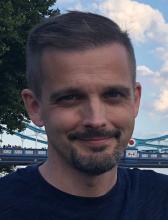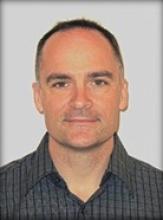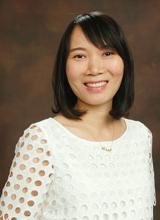Power Electronics and its Trends

Mr. Mark Thoren
System Design Engineer
Analog Devices, Santa Clara, CA
Thu, 03/05/2020
Technology headlines are dominated by terms like artificial intelligence, machine learning, Internet of Things, “big data” and other trendy elements of the “digital revolution”. But under the surface, the hardware that enables these technologies places ever increasing demands on power circuitry: Your cell phone is expected to charge in an hour and last for days. Power dissipation is a limiting factor in computer server density. And the countless bucks, boosts, and linear regulators in your vehicle have to run over extreme temperature ranges, with high efficiency, and do their job quietly, meeting stringent electromagnetic interference (EMI) requirements. This talk will discuss trends in modern power electronics and how these challenges are being addressed. Practical application examples will be shown, as well as a bit of history and helpful hints for your own projects.
Mr. Mark Thoren joined Linear Technology (now a part of Analog Devices) in 2001 as an applications engineer supporting precision data converters. He's since held various roles in mixed-signal applications including evaluation systems, training, technical publications, and customer support. Mark recently joined Analog Devices' System Development Group, where he works on reference designs and developing educational material for the Analog Devices University Program. Mark has a BS in Agricultural Mechanical Engineering and MSEE, both from University of Maine.
Aerospace/Defense Measurement Applications

Dr. Loren Betts
R&D Manager
Keysight Technologies, Santa Rosa, CA
Thu, 02/20/2020
Abstract – The rapid and ongoing integration of new technologies into aerospace and defense systems brings tremendous challenges. The race to keep up with emerging threats puts a strain on already tight budgets. At the same time, requirements on performance and reliability continue to become increasingly stringent. Test tools must adapt by addressing issues such as ease of use, cost of test and, perhaps most important, cutting-edge performance. This talk will explore current trends in test equipment and associated software, highlighting new architectures and capabilities that solve characterization challenges in radar, EW, SIGINT, terrestrial military communications, and satellite technology.
Dr. Loren Betts received his BSc degree in computer engineering from the University of Alberta, Edmonton, Alberta, Canada, in 1997, and his MSc degree in electrical engineering from Stanford University, Stanford, CA, in 2003. In 2010 he completed his PhD degree in electrical engineering from the University of Leeds, Leeds, UK. His PhD research focused on the Nonlinear Vector Network Analyzer (NVNA) based on the Keysight PNA-X. Loren started working at Hewlett Packard (HP) in 1997, Agilent Technologies in 1999, and Keysight Technologies in 2015. He is currently an R&D manager focusing on aerospace and defense.
How Machines 'See' the World

Dr. Kaiman Zeng
Assistant Professor
EE Department, Arkansas Tech University, Russellville, AR
Thu, 02/06/2020
Abstract – Vision might be the most important sense for our humans. Visual perception provides us an understanding of our surroundings and help interact with the surroundings. In order to build smart machines to perform intelligent work for us, enabling machine vision plays a central role. Thanks to recent advances in deep learning, big data, and supercomputers, we start to have the capabilities of empowering machines see the world like us. The performances of some classic tasks in computer vision, such as image recognition and object detection, have been significantly boosted. This talk will discuss the research challenges, state-of-the-art deep learning models, and their applications in classic computer vision tasks.
Dr. Kaiman Zeng is an Assistant Professor in the Department of Electrical Engineering at Arkansas Tech University. She received her Ph.D. degree from the Department of Electrical and Computer Engineering at Florida International University. Her research interests include digital image processing, computer vision, machine learning, and engineering education.